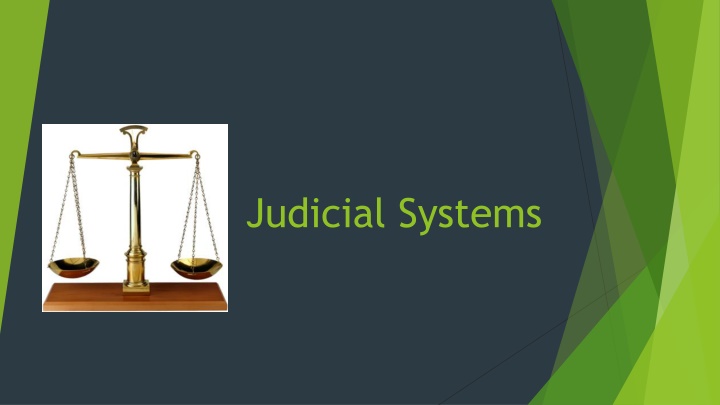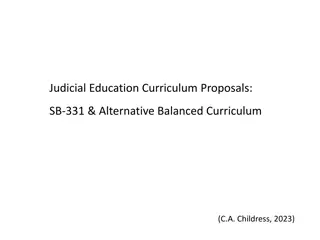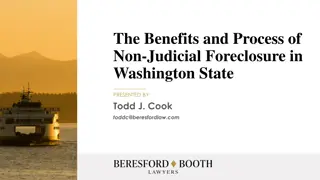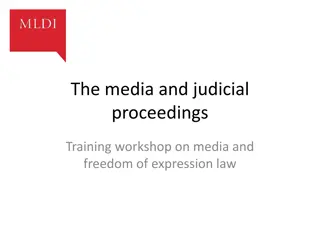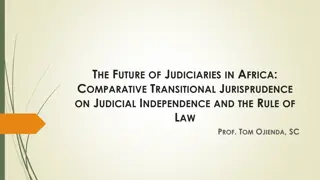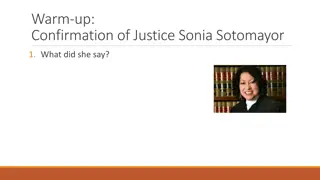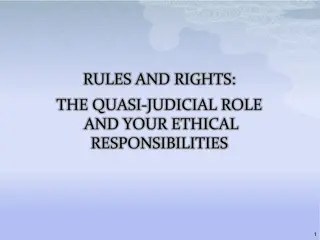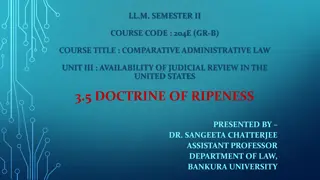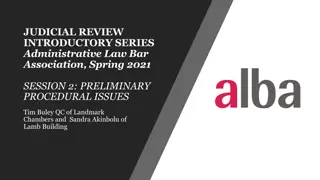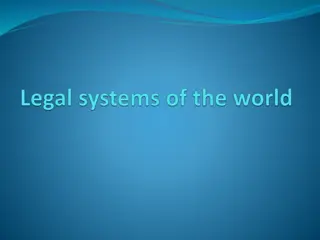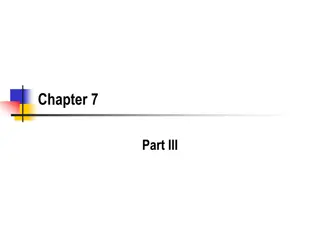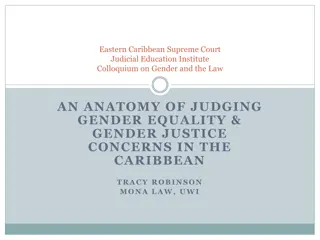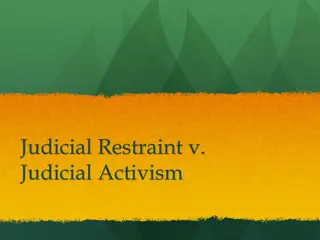Judicial Systems
Judiciaries play a crucial role in strengthening democracy by maintaining checks and balances, upholding the rule of law, protecting rights and liberties, and ensuring accountability. The independence of the judiciary is essential to uphold democratic principles and maintain public trust in the legal system.
Download Presentation

Please find below an Image/Link to download the presentation.
The content on the website is provided AS IS for your information and personal use only. It may not be sold, licensed, or shared on other websites without obtaining consent from the author.If you encounter any issues during the download, it is possible that the publisher has removed the file from their server.
You are allowed to download the files provided on this website for personal or commercial use, subject to the condition that they are used lawfully. All files are the property of their respective owners.
The content on the website is provided AS IS for your information and personal use only. It may not be sold, licensed, or shared on other websites without obtaining consent from the author.
E N D
Presentation Transcript
Judiciaries can strengthen democracy by: Maintain checks and balances Maintain separation of powers Protect rights and liberties (require and restrict government actions) Establish rule of law (later) Hold government accountable Ensure free and fair elections Allow access point to legal system for citizens
Rule by Law (China) Rulings should follow written laws Judicial rulings cannot strike down legislature (only executive) Limited to letter of the law Rule through law?
Rule of Law Rule of law is a principle under which all persons, institutions, and entities are accountable to laws that are: Publicly promulgated Equally enforced Independently adjudicated And consistent with international human rights principles. Requires Independence why?
Independence in the Judiciary Countries attempt to keep the judges/judicial system independent to Support the democratic philosophy that the power of the people is supreme (Federalist #78-Hamilton) Increase the legitimacy of the courts in the eyes of the international community Increase the legitimacy of the courts in the eyes of the people Countries attempt to keep the judges/judicial system independent by Separating the judiciary from other government branches Appointment and confirmation processes Long tenure, security of services High qualifications for office High salaries Prohibition of practice after retirement Judicial review & broad jurisdiction
Undermining the Judiciary. Refuse to enact decisions or ignoring them Appointing only loyal judges Threatening to remove judges Blackmailing or intimidating judges Limit the court s jurisdiction Allowing intervention by police or executive Controlling legal education or professional associations Ruling by decree or referendum
In our countries: Great Britain Nigeria Mexico Russia Iran China
Iran Head of court appointed by President for 5 year term Secular law melded with Sharia Law 79-82 Revolutionary Tribunals (no appeals) 1982/3 courts reestablished but with religiously trained judges Council of Guardians approves anyone to be appointed Inquisitive system (not adversarial) Judge holds ultimate power
China Appointed by people s congresses Serve a max of 2 5-year terms Supreme People s Court in Beijing Hong Kong and Macau have separate court systems Encourage use of state-sponsored arbitration system
Russia Constitutional Court, Supreme Court, and Supreme Court of Arbitration Judges appointed by Federation Council and serve for life Legal profession unregulated (moving toward regulation) Arbitration courts have highest international respect and transparency 78% of citizens do not expect to find justice in the courts (transparency international)
Nigeria Independent branch on paper In practice subject to Executive and Legislative branches English Law, English Common law, Customary Law and Shariah Law Allow for Shariah courts in the North Supreme Court based in Abujah (not more than 21 justices appointed by president and confirmed)
Mexico Civil Law (based on legal code, comes from Rome & Napoleonic Code) Supreme Court (11 justices, and 1 chief justice) Supreme Court justice appointed for 15 year terms Appointed by president, confirmed by legislature Inquisitorial judicial system (not adversarial) Courts function as investigators From French and Roman Law Role of lawyers different (reform efforts) Results in a backlog of cases
Great Britain Supreme Court Common law county (based on precedence and tradition) Adversarial legal system
